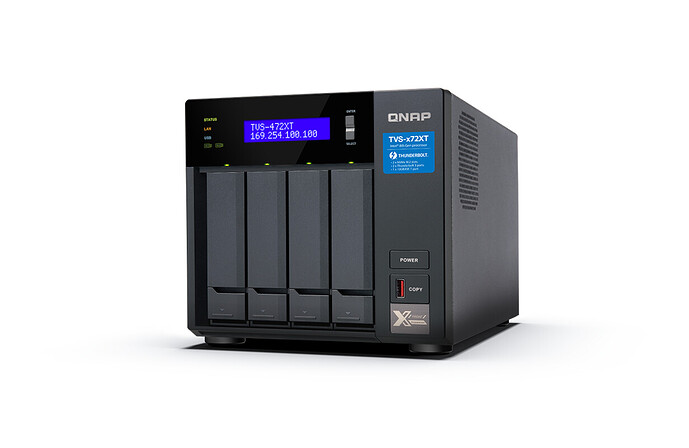My Initial Dilemma as Expressed in this Post:
Best Practice(s) for using a NAS (QNAP TS451+) to Install a Secondary Roon Core?
From the Input Received from that Post:
Now that there are hardware problems with my NAS (both RAM & SSD add-ons needed & a potential DOA pronouncement)", turning to a NUC as a primary 24/7 Roon Server, seems a prudent choice.
I’ve been researching a NAS to replace my QNAP. And then use the new NAS as file storage for the new NUC.
If this makes sense; the next questions are do I:
1) Run Rock on the NUC,
OR
2) Load Windows and run a Roon Core (as I’m now doing on the HTPC)?
In this case, without direct knowledge, Rock would seem the most prudent choice. What say you?
Following the answer to that, which NUC should I buy? I see that Intel is handing over the NUC business to ASUS:
“On July 18, 2023, Intel and ASUS announced that they had agreed on a term sheet for a non-exclusive license for ASUS to manufacture, sell, and support 10th to 13th Gen NUC systems. ASUS will be responsible for NUC sales distribution for 10th to 13th Gen NUC systems.” “For 13th Gen NUC and future generations, ASUS will select and create new ASUS NUC SKUs.”
I’m not sure how that move effects my NUC decision, or even if it does?
I presume Rock NUC’s have been robust and may perhaps even sound better on a highly resolved system (as is my 2-channel room with OTL Tube Amps, EMM Labs DAC & Electrostatic speakers). I know some have moved from Windows Home and Pro, to the Windows Server because of supposed sonic improvements. That should be even more true because Rock is Linux based. Does Rock have sonic improvements, or other advantages over a Roon Core running on a Windows PC (NUC)?
Being one not to prefer flying blind, with Rock being Linux based and with me being Linux illiterate, not having any ability to monitor Rock and the NUC is concerning. But in practice, should that be a concern?
My Roon Requirements:
Lastly, I don’t do DSP and don’t as of yet do Tidal or Qobuz, and am about 90% sure I won’t use them. I do have approx. 240,000 tracks. With those requirements what NUC model/version – CPU, RAM etc., – should I be seeking?
